#discuss-debate-dissect-deconstruct this statement as you please
Explore tagged Tumblr posts
Text
An important thing to remember about the changes in government in the UK and France:
Labour won because the Conservative vote was split between the Tories and Reform UK.
The Left leaning parties in the French government came in first, because they put aside their differences and ran together in opposition to the Le Pen party.
Keep this in mind for the US election this November. Stay focused.
#it's far more complicated than this but it is the very most basic of summaries#discuss-debate-dissect-deconstruct this statement as you please#Hell; I welcome more informed commentary than myself!#but most of all#STAY FOCUSED#uk politics#french politics#US politics#US election 2024
35 notes
·
View notes
Text
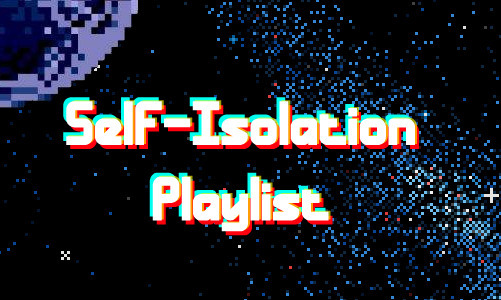

Last time I made a playlist of recommended youtube channels to enjoy while in lockdown or self quarantine, I focused on individual videos while also recommending other videos from the same channel.
I thought I’d make another list only this time I’m going to be recommending playlists or series on youtuber instead of just individual videos.
This is gonna go exactly like last time, so check out any of these that might seem interesting to you, and hopefully I can give you something to look into if you want something to watch but don’t feel like watching a Netflix or Crunchyroll show.
Last time I tried to put this under a read more break but it didn’t work and I ended up posting this long-ass post on everyone’s dash. Well I decided to do so again here. hit J to skip to the bottom of the post if you don’t feel like reading this whole thing. If you’re on tumblr mobile; why?
In no particular order;
Cinemassacre movie reviews and topics

All of you already know James Rolfe as the AVGN. I started watching him before Youtube was even a thing, before he was even signed on with Screwattack. Back when his videos could only be seen on his own website (or for some reason included on the free DVD you got with the local video game magazines). However, I eventually outgrew the outrage style humour of the AVGN episodes... but then James started doing Monster Madness where he would talk about his love for horror movies, and this where I learned about his vast knowledge about movie history and even films I had never even heard mention of before! I think it’s safe to say, he got me to be interested in movie history just as much as movie production and film as a viewing experience.
I recommend this playlist which is a hodgepodge of James talking about old horror movie franchises, talking about his first experience with Power Rangers as someone who didn’t grow up with it, or how Bob Ross is a childhood hero of his. It’s an excellent play list that’s really laid back but you learn a lot of stuff from it. James is very informed for the most part and it leads you to wanting to check out a lot of these things too, just because he’s so passionate about it.
If I ever get over my weird hang up about speaking out loud, these are the kinds of videos I’d like to make.
Vinesauce Vinny: The Neverhood
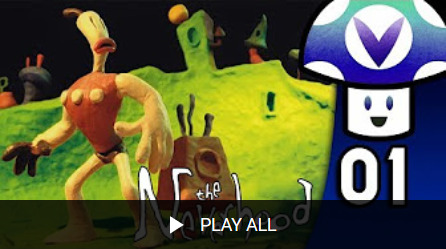
Vinny is by no means a new Let’s Player, having been on Youtube for over 10 years now, but I only started watching him a few months ago. I started with this playlist when I saw he was doing The Neverhood, a game I had heard about but never seen played before. The Neverhood is a bizarre game, as a point and click PC game from the 90s where the entirety of the video game was made with stop motion and clay. Something that sounds so insane you would say it’s impossible if not for the fact that it exists. The claymation itself is extremely well done, and the game has a really weird and absurd sense of humour. Just the strangest things happen in this thing. Now couple that with Vinny’s very dry and straightforward delivery and you have probably one of the funniest Let’s Plays I’ve watched in a long time.
This is also “short” for a Let’s Play series. With only 4 parts to it, the longest video only being a bit under and hour and 30 minutes. It’ll still take up a good chunk of your time, but it’s not as daunting as some of the other Let’s Plays I’ll mention on this list.
Team Four Star: Pokemon Shield Nuzlocke

Exactly what it says on the tin. The guys from Team Four Star play Pokemon Shield with Nuzlocke rules. They’ve done several Nuzlocke runs in the past, but I find the Pokemon Shield is the best one they’ve done. Especially since a lot of the needless fluff and grinding has been edited out. So unlike some of their previous series you don’t see a lot of Kieran and Grant running in a circle for an hour trying to catch a specific pokemon or trying to get to a certain level.
It’s also hilarious as they have a lot of “house rules” for the Nuzlocke often involving the exercise bike they.... have..... for some reason.
It’s very good and the gym battles become SUPER hype with the Nuzlocke rules and the music.
Baywatching
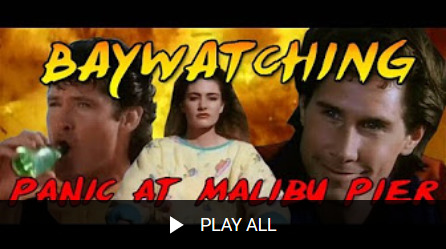
Having been going to a few years now, watch Allison try her very best to go through and do a video series where she talks about summarises every episode of Baywatch.
.... Ever. Single. Episode.
She’s not even close to done yet (and now she’s introduced Baywatch Nights AS WELL) but her trying to explain the batshit insanity of this show, it’s over the top characters, it’s insane plots and behind the scenes weirdness with all the enthusiasm and love for this slice of 90s is amazing. Please enjoy a good thick chunk of inside jokes, silly character voices, and a whole lot of ?????
Brutal Moose: Shenmue

Probably one of the most chill channels on all of Youtube, Brutal Moose aka Ian, prefers playing games you wouldn’t think would make for good Let’s Plays. And maybe they don’t, objectively. A collection of playlists covering Truck Simulator, Nancy Drew, Hidden Object games etc etc, spliced in with old commercials from drive in theaters from the 50s,60s and 70s. Ian’s Let’s Play channel is great for just putting on and letting play for company while you’re drawing or grinding in a video game or playing Stardew or something.
I recommend his Shenmue playthrough as Ian completely fell in love with the game and went on to play both the sequel and the newly released third game. Ian genuinely adores the weird voice acting and all the menial tasks and mini-games you can do. I watched this a lot in 2018 when I was going through a rough time, and it really helped me in a strange way to just put Ian on and listen to him talk to the chat and drive a forklift around for like 4 hours straight before going to Tomato Mart or wasting all his money on the gacha machines.
A Measured Response to “In Defense of Dark Souls 2″
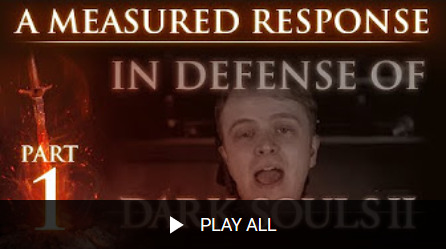
At some point, big name youtuber Hbomberguy made a video called “In Defense of Dark Souls II”. I’m not subscribed to Hbomberguy but I enjoyed his video on why Sherlock (the BBC show) is trash. (come to think of it I should have added that to the first list). And it seems the video on Sherlock was really good and well argued.... and it seems his “In Defense of Dark Souls 2″ video... was not.
Using subjective language, bad representation of facts, or simply outright getting certain information wrong, Hbomberguy′s video on Dark Souls II is, at best, a man trying to argue that he likes Dark Souls II because it is “Objectively good”, rather than simply accept he likes it... because he likes it.
MauLer is kind of an asshole, but I have learned more about dissecting someone’s argument and deconstructing what they have said watching his response series than I have in any english or debate class I have ever had.
The response is over 10 hours long, but this is because MauLer takes time with each and every statement he takes umbrage with, discussing what is being said, discusses why it is false or dubious, and then compares with actual facts and research.
If you ever want to know how to to distinguish subjective opinion from objective fact in someone else’s argument regarding... ANYTHING really, I highly recommend this series.
I may not like MauLer as a person, but DAMN if he doesn’t know how to deconstruct an argument in a logic, emotionless way.
John Wolfe: Maize

Maize is a stupid game. a Stupid stupid game.
It involves sentient corn, and underground secret genetics lab, a Russian bootleg teddy bear that hates everyone, sentient corn, and a crumpet.
This game IMMEDIATELY went on my wishlist after watching this playthrough. Please watch John try and figure what the actual fuck is going on in this Monty Python-eque weird black comedy. It’s stupid, it’s weird, it’s bizarre and it’s honestly one of the funniest games I’ve seen streamed.
Hollywood: a Celebration of the Silent Era

This is not a youtube playlist. I mean it IS, but what this actually is, is a TV series released in the UK in 1980 covering the Silent Film era. As it was made in 1980, it includes interviews with many of the silent film stars who were often still alive during this documentary’s production. Each episode covers a specific theme of the silent movie era. One episode is about comedies, one is about WWI, one is about Westerns etc etc.
It’s a fascinating series, because it focuses on the silent era which, in modern day, I think many people unfairly think of as “those first few years of movies before movies really became a thing.” And that’s such a shame and really not true. The artistry, camera tricks, and raw nature of this early era of film making is so important and produced films which can still be watched today easily, possibly even easier than a few modern movies as often the very fact that the films are silent means they are universal, regardless of what language you speak.
I think an episode or two might have been turned to private or copyright claimed in this playlist, but I know if you do a search on youtube you can find the episode uploaded by someone else.
Diamanda Hagan: Bonekickers
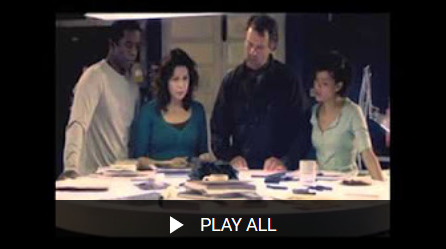
Bonekickers is the show Mathew Graham made before he went on to work on the new Dr. Who. It is about archaeologists and it is God-fucking-Awful.
It is.... look. Ok. I like Archaeology a lot. But this isn’t a show that’s bad “if you like history” or “if you know things about archaeology”. This show is bad because it doesn’t make a single fucking lick of sense, all the characters are awful and terrible, and even if you understand what’s going on in the story you’re still going to be screaming “WHY????” at the screen as each new baffling stupid piece of the puzzle slots into place.
Diamanda Hagan has 0 time for this garbage and she’s going to walk you through each episode to show you how truly horrible this piece of garbage is.
Cry Plays: Ori and the Blind Forest
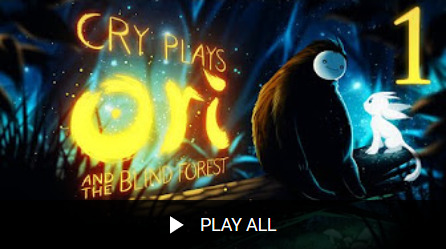
With Ori and the Will of the Wisps releasing recently, now is a great time to go and watch Cry playthrough the first Ori game. an absolutely gorgeous piece of work with a beautiful soundtrack and really likeable character designs and a sweet story, Ori is a great game to put on, sit back, and just let it wash over you. Cry’s playthrough is also great because although its a Metroidvania game, Cry fast forwards the parts where he backtracks for a long period of time, so you don’t get stuck watching him run back and forth as he tries to figure out where to go next or anything like that.
Cry also recently started playing the sequel as well!
If you enjoyed this list at all, please consider tipping me for a coffee
☕️ Ko-fi ☕️
#self isolation#Quarantine#Youtube#Links#Recommendations#Recommended#ask to tag#long post#No editing we die like men
55 notes
·
View notes
Text
The Fourth Age – Preface
The following is an excerpt from GigaOm publisher Byron Reese’s new book, The Fourth Age: Smart Robots, Conscious Computers, and the Future of Humanity. You can purchase the book here.
The Fourth Age explores the implications of automation and AI on humanity, and has been described by Ethernet inventor and 3Com founder Bob Metcalfe as framing “the deepest questions of our time in clear language that invites the reader to make their own choices. Using 100,000 years of human history as his guide, he explores the issues around artificial general intelligence, robots, consciousness, automation, the end of work, abundance, and immortality.”
What follows is the preface from The Fourth Age.
PREFACE
(Please read. Not the usual blah-blah stuff.)
Robots. Jobs. Automation. Artificial intelligence. Conscious computers. Superintelligence. Abundance. A jobless future. “Useless” humans. The end of scarcity. Creative computers. Robot overlords. Unlimited wealth. The end of work. A permanent underclass.
Some of these phrases and concepts probably show up in your news feed every day. Sometimes the narratives are positive, full of hope for the future. Other times they are fearful and dystopian. And this dichotomy is puzzling. The experts on these various topics, all intelligent and informed people, make predictions about the future that are not just a little different, but that are dramatically different and diametrically opposed to each other. So, why do Elon Musk, Stephen Hawking, and Bill Gates fear artificial intelligence (AI) and express concern that it may be a threat to humanity’s survival in the near future? And yet, why do an equally illustrious group, including Mark Zuckerberg, Andrew Ng, and Pedro Domingos, and this viewpoint so far-fetched as to be hardly even worth a rebuttal? Zuckerberg goes so far as to call people who peddle doomsday scenarios “pretty irresponsible,” while Andrew Ng, one of the greatest minds in AI alive today, says that such concerns are like worrying about “overpopulation on Mars.” After Elon Musk was quoted as saying “AI is a fundamental risk to the existence of human civilization,” Pedro Domingos, a leading AI researcher and author, tweeted, “One word: Sigh.” Each group’s members are as confident in their position as they are scornful of the other side.
With respect to robots and automation, the situation is the same. The experts couldn’t be further apart. Some say that all jobs will be lost to automation, or at the very least that we are about to enter a permanent Great Depression in which one part of the workforce will be unable to compete with robotic labor while the other part will live lavish lives of plenty with their high-tech futuristic jobs. Others roll their eyes at these concerns and point to automation’s long track record of raising workers’ productivity and wages, and speculate that a bigger problem will be a shortage of human laborers. While fistfights are uncommon between these groups, there is condescending invective aplenty.
Finally, when considering the question of whether computers will become conscious and therefore alive, the experts disagree yet again. Some believe that it’s an obvious fact that computers can be conscious, and thus any other position is just silly superstition. Others emphatically disagree, saying that computers and living creatures are two very different things and that idea of a “living machine” is a contradiction in terms.
To those who follow all this debate, the net result is confusion and frustration. Many throw their hands up and surrender to the cacophony of competing viewpoints and conclude that if the people at the forefront of these technologies cannot agree on what will happen, then what hope do the rest of us have? They begin to view the future with fear and trepidation, concluding that these overwhelming questions must be inherently unanswerable.
Is there a path out of this? I think so. It begins when we realize that these experts disagree not because they know different things, but because they believe different things.
For instance, those who predict we will make conscious computers haven’t come to that conclusion because they know something about consciousness that others don’t, but because they believe something very basic: that humans are fundamentally machines. If humans are machines, it stands to reason that we can eventually build a mechanical human. On the other hand, those who think that machines will never achieve consciousness often hold that view because they aren’t persuaded that humans are purely mechanical beings.
So that is what this book is about: deconstructing the core beliefs that undergird the various views on robots, jobs, AI, and consciousness. My goal is to be your guide through these thorny issues, dissecting all the assumptions that form the opinions that these experts so passionately and confidently avow.
This book is not at all about my own thoughts concerning these issues. While I make no deliberate The effort to hide my beliefs, they are of little importance to how you, the reader, work your way through this book. My goal is for you to finish this book with a thorough understanding of where your beliefs lead you on these questions. Then, when you hear some Silicon Valley titan or distinguished professor or Nobel laureate make a confident claim about robots or jobs or AI, you will instantly understand the beliefs that underlie their statements.
Where does a journey like this begin? By necessity, far in the past, as far back as the invention of language. The questions we will grapple with in this book aren’t about transistors and neurons and algorithms and such. They are about the nature of reality, humanity, and mind. The confusion happens when we begin with “What jobs will robots take from humans?” instead of “What are humans?” Until we answer that second question, we can’t meaningfully address the first.
So I invite you to join me on a brisk walk through 100,000 years of human history, discussing big questions along the way, and exploring the future to come. This book is a journey. Thank you for taking it with me.
Byron Reese
Austin, Texas
To read more of GigaOm publisher Byron Reese’s new book, The Fourth Age: Smart Robots, Conscious Computers, and the Future of Humanity, you can purchase it here.
from Gigaom https://gigaom.com/2018/04/24/fourth-age-preface/
0 notes
Text
The Fourth Age – Preface
The following is an excerpt from GigaOm publisher Byron Reese’s new book, The Fourth Age: Smart Robots, Conscious Computers, and the Future of Humanity. You can purchase the book here.
The Fourth Age explores the implications of automation and AI on humanity, and has been described by Ethernet inventor and 3Com founder Bob Metcalfe as framing “the deepest questions of our time in clear language that invites the reader to make their own choices. Using 100,000 years of human history as his guide, he explores the issues around artificial general intelligence, robots, consciousness, automation, the end of work, abundance, and immortality.”
What follows is the preface from The Fourth Age.
PREFACE
(Please read. Not the usual blah-blah stuff.)
Robots. Jobs. Automation. Artificial intelligence. Conscious computers. Superintelligence. Abundance. A jobless future. “Useless” humans. The end of scarcity. Creative computers. Robot overlords. Unlimited wealth. The end of work. A permanent underclass.
Some of these phrases and concepts probably show up in your news feed every day. Sometimes the narratives are positive, full of hope for the future. Other times they are fearful and dystopian. And this dichotomy is puzzling. The experts on these various topics, all intelligent and informed people, make predictions about the future that are not just a little different, but that are dramatically different and diametrically opposed to each other. So, why do Elon Musk, Stephen Hawking, and Bill Gates fear artificial intelligence (AI) and express concern that it may be a threat to humanity’s survival in the near future? And yet, why do an equally illustrious group, including Mark Zuckerberg, Andrew Ng, and Pedro Domingos, and this viewpoint so far-fetched as to be hardly even worth a rebuttal? Zuckerberg goes so far as to call people who peddle doomsday scenarios “pretty irresponsible,” while Andrew Ng, one of the greatest minds in AI alive today, says that such concerns are like worrying about “overpopulation on Mars.” After Elon Musk was quoted as saying “AI is a fundamental risk to the existence of human civilization,” Pedro Domingos, a leading AI researcher and author, tweeted, “One word: Sigh.” Each group’s members are as confident in their position as they are scornful of the other side.
With respect to robots and automation, the situation is the same. The experts couldn’t be further apart. Some say that all jobs will be lost to automation, or at the very least that we are about to enter a permanent Great Depression in which one part of the workforce will be unable to compete with robotic labor while the other part will live lavish lives of plenty with their high-tech futuristic jobs. Others roll their eyes at these concerns and point to automation’s long track record of raising workers’ productivity and wages, and speculate that a bigger problem will be a shortage of human laborers. While fistfights are uncommon between these groups, there is condescending invective aplenty.
Finally, when considering the question of whether computers will become conscious and therefore alive, the experts disagree yet again. Some believe that it’s an obvious fact that computers can be conscious, and thus any other position is just silly superstition. Others emphatically disagree, saying that computers and living creatures are two very different things and that idea of a “living machine” is a contradiction in terms.
To those who follow all this debate, the net result is confusion and frustration. Many throw their hands up and surrender to the cacophony of competing viewpoints and conclude that if the people at the forefront of these technologies cannot agree on what will happen, then what hope do the rest of us have? They begin to view the future with fear and trepidation, concluding that these overwhelming questions must be inherently unanswerable.
Is there a path out of this? I think so. It begins when we realize that these experts disagree not because they know different things, but because they believe different things.
For instance, those who predict we will make conscious computers haven’t come to that conclusion because they know something about consciousness that others don’t, but because they believe something very basic: that humans are fundamentally machines. If humans are machines, it stands to reason that we can eventually build a mechanical human. On the other hand, those who think that machines will never achieve consciousness often hold that view because they aren’t persuaded that humans are purely mechanical beings.
So that is what this book is about: deconstructing the core beliefs that undergird the various views on robots, jobs, AI, and consciousness. My goal is to be your guide through these thorny issues, dissecting all the assumptions that form the opinions that these experts so passionately and confidently avow.
This book is not at all about my own thoughts concerning these issues. While I make no deliberate The effort to hide my beliefs, they are of little importance to how you, the reader, work your way through this book. My goal is for you to finish this book with a thorough understanding of where your beliefs lead you on these questions. Then, when you hear some Silicon Valley titan or distinguished professor or Nobel laureate make a confident claim about robots or jobs or AI, you will instantly understand the beliefs that underlie their statements.
Where does a journey like this begin? By necessity, far in the past, as far back as the invention of language. The questions we will grapple with in this book aren’t about transistors and neurons and algorithms and such. They are about the nature of reality, humanity, and mind. The confusion happens when we begin with “What jobs will robots take from humans?” instead of “What are humans?” Until we answer that second question, we can’t meaningfully address the first.
So I invite you to join me on a brisk walk through 100,000 years of human history, discussing big questions along the way, and exploring the future to come. This book is a journey. Thank you for taking it with me.
Byron Reese
Austin, Texas
To read more of GigaOm publisher Byron Reese’s new book, The Fourth Age: Smart Robots, Conscious Computers, and the Future of Humanity, you can purchase it here.
0 notes